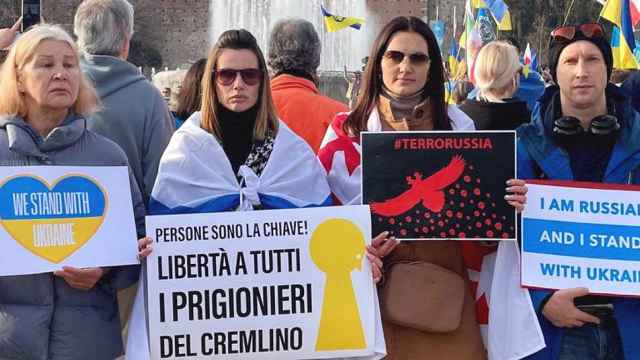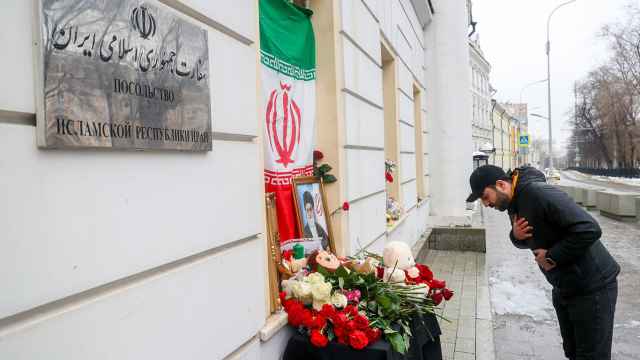There are about 118,000 orphans in Russian state care, and the number of domestic adoptions fell from 2011 to 2012, senior government officials told State Duma deputies on Friday.
The updated figures could bring clarity to a national debate about how to reduce the number of children in state institutions and encourage domestic adoption that was prompted by the government's controversial decision to ban U.S. adoptions earlier this year.
The number of domestic adoptions fell from 7,400 in 2011 to 6,600 in 2012, Prosecutor General Yury Chaika said during the special session on adoptions issues, RIA-Novosti reported.
Another 54,500 were taken in by foster families, said Olga Golodets, deputy prime minister in charge of social policy. About 118,000 orphans currently live in state-run facilities, she said.
The combined number of children adopted or placed in foster care is "small" and "doesn't inspire optimism," she said, adding that the government aimed to increase it by 30,000, Interfax reported.
Furthermore, about 74,400 new orphans entered the state system in 2012, more than in 2011, and about 60 percent of them have living parents, Golodets said. Alcoholism, drug addiction, and asocial behavior were among the reasons why children were taken into state custody, she said.
Children's ombudsman Pavel Astakhov and others have said cash payments should be used to stimulate domestic adoptions, but Golodets said the government had rejected such a measure.
"If a child is taken into a family not out of love, but for financial reasons, the child's life, health, and well-being will be endangered," she said on Friday, RIA-Novosti reported.
Adoption to the United States, which historically adopted more Russians than any other country — a total of 60,000 in the past two decades — was banned as of Jan. 1, ostensibly due to safety concerns after a string of abuse scandals and 20 deaths of Russian adoptees living with U.S. families.
The move was widely seen as a response to the U.S. Magnitsky Act, which calls for sanctions against Russians suspected of human rights abuses.
Related articles:
A Message from The Moscow Times:
Dear readers,
We are facing unprecedented challenges. Russia's Prosecutor General's Office has designated The Moscow Times as an "undesirable" organization, criminalizing our work and putting our staff at risk of prosecution. This follows our earlier unjust labeling as a "foreign agent."
These actions are direct attempts to silence independent journalism in Russia. The authorities claim our work "discredits the decisions of the Russian leadership." We see things differently: we strive to provide accurate, unbiased reporting on Russia.
We, the journalists of The Moscow Times, refuse to be silenced. But to continue our work, we need your help.
Your support, no matter how small, makes a world of difference. If you can, please support us monthly starting from just $2. It's quick to set up, and every contribution makes a significant impact.
By supporting The Moscow Times, you're defending open, independent journalism in the face of repression. Thank you for standing with us.
Remind me later.





